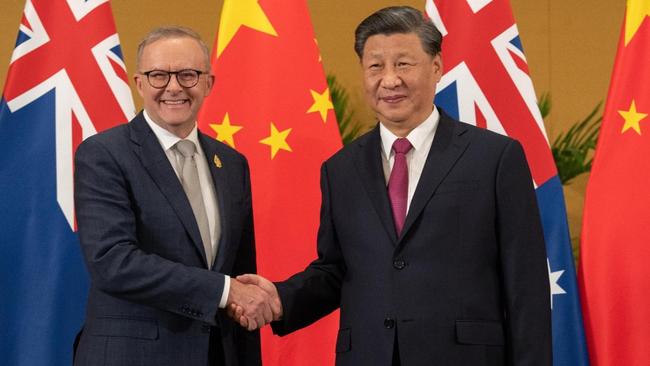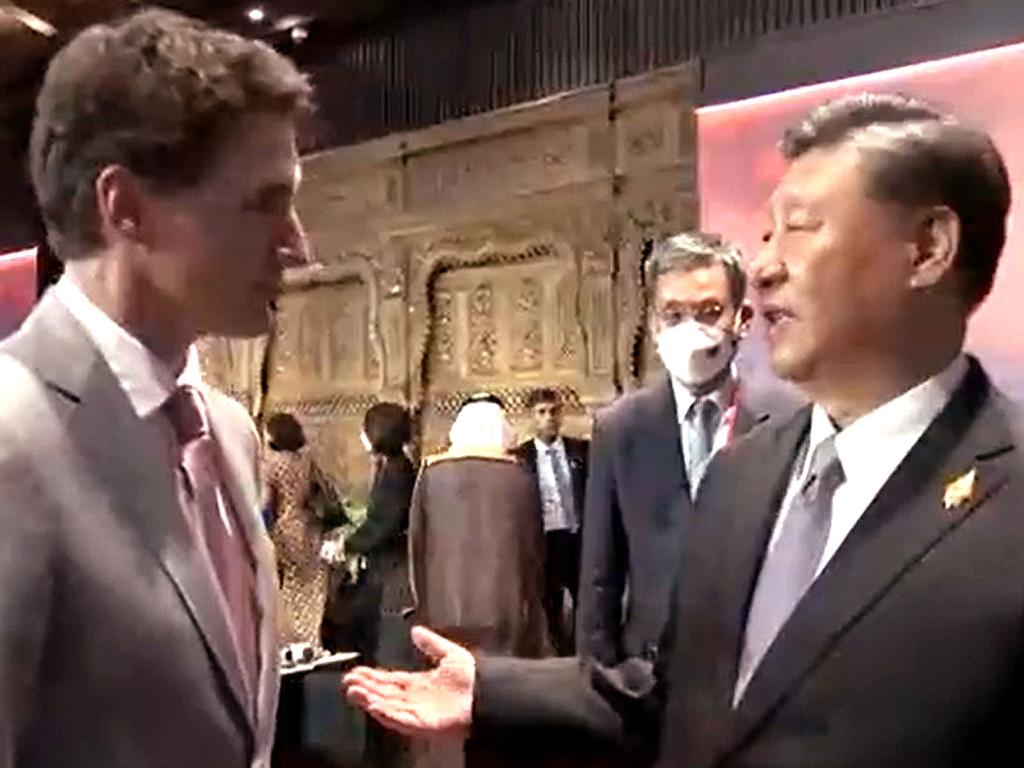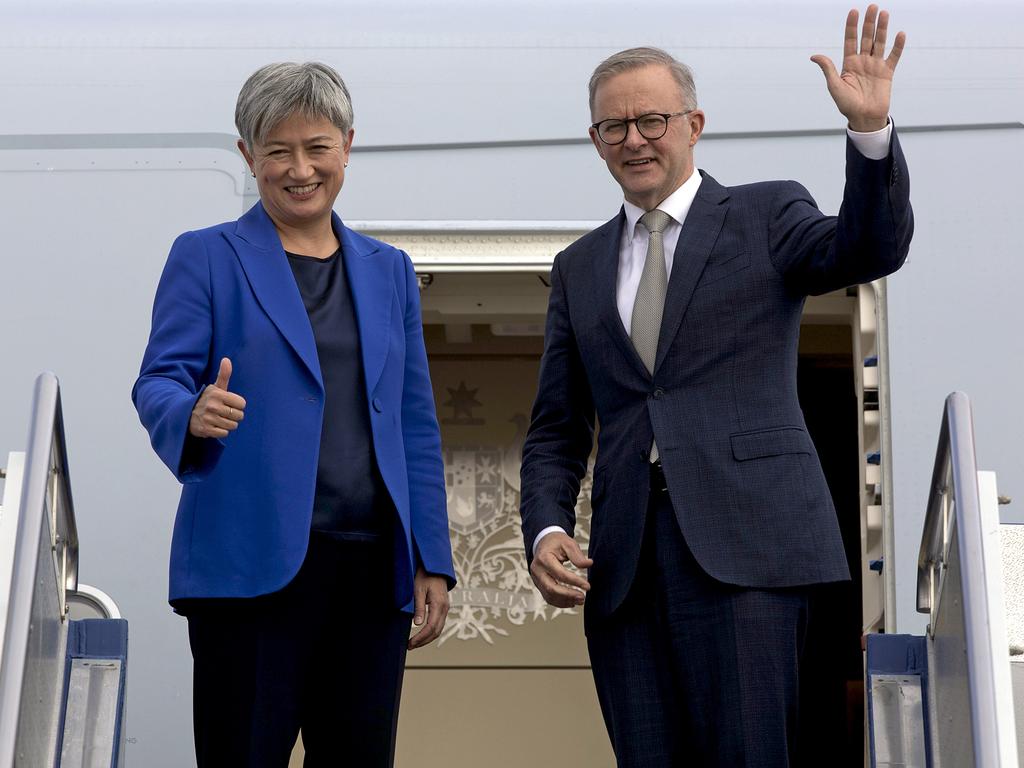AUKUS a threat to world peace, Beijing warns
China has elevated its opposition to the nuclear submarine plan just days after Xi Jinping’s meeting with Anthony Albanese.

Beijing has called AUKUS a “threat” to Australia’s relationship with China and a danger to “world peace”, as it elevates opposition to the nuclear submarine plan days after Xi Jinping met with Anthony Albanese.
Despite personally overseeing a 15-month campaign against the advanced weapons agreement, the Chinese President did not once mention AUKUS during his half-hour meeting in Bali with the Prime Minister.
Mr Xi’s propaganda machine has since warned Canberra not to misinterpret that silence. “It may have gone unmentioned due to a tight schedule or simply to facilitate a friendlier atmosphere … the Australian PM cannot and should not take it as signs that China is not concerned about the pact,” the Global Times said in an editorial.
“If Canberra chooses to ignore Beijing’s concerns over AUKUS, the pact will remain a thorn in the side of China-Australia relations.”
On Friday, China’s representative at a meeting in Geneva of the International Atomic Energy Agency said the nuclear-powered submarines proposal would undermine the nuclear proliferation treaty. The China Daily also joined the post-Bali offensive, calling AUKUS an “act of nuclear proliferation” that would “set a terrible precedent”.
The party-state masthead said the UN-headquartered agency would itself become a violator of the Non-Proliferation Treaty by “acting as an accomplice of an illegal transfer of nuclear materials for military use” if it did not oppose the agreement.
“For world peace and the future of humanity, the IAEA must act responsibly,” it editorialised.
Beijing has worked to undermine AUKUS – an agreement between Australia, the US and the United Kingdom – ever since it was unveiled in September 2021.
French President Emmanuel Macron tried to make use of that opposition last week in a longshot pitch for a restoration of the $90bn contract for French-designed conventional subs, which was abandoned with the AUKUS announcement. He said the AUKUS deal risked provoking a nuclear conflict with China.
Scott Morrison has called the AUKUS pact one of the major achievements of his prime ministership and Beijing’s rising coercion of Australia had been the impetus for Canberra’s switch to nuclear-powered submarines.
While Mr Xi’s propaganda machine has been strident in its opposition, some Chinese international relations experts say Beijing needs to reflect on Canberra’s anxiety.
“China needs to pay more attention to Australia’s security and strategic needs, not limited to meeting Australia’s current economic needs,” Xu Shanpin said.
Dr Xu, a researcher at the East Asia Study Centre of Xiangtan University, said Australia also needed to respect China’s status as a great power and “avoid preaching or even interfering” with Beijing’s approach to Taiwan, Xinjiang and human rights issues.
He said while the meeting between Mr Xi and Mr Albanese left significant strategic issues outstanding, it was an important step in stabilising the relationship.
“At present, China-Australia relations have entered a new normal state of cold politics and hot economy. To achieve the ideal state, China and Australia need to treat each other frankly and face up to their differences,” he said.
The Albanese government has said it will announce its choice of nuclear-powered submarine vessel in March.
Defence Minister Richard Marles last week said nuclear powered submarines would provide “an unmatched strategic advantage in terms of surveillance and protection” of Australia’s maritime approaches. “This capability will revolutionise the potency of the ADF and greatly enhance our sovereignty.”








To join the conversation, please log in. Don't have an account? Register
Join the conversation, you are commenting as Logout